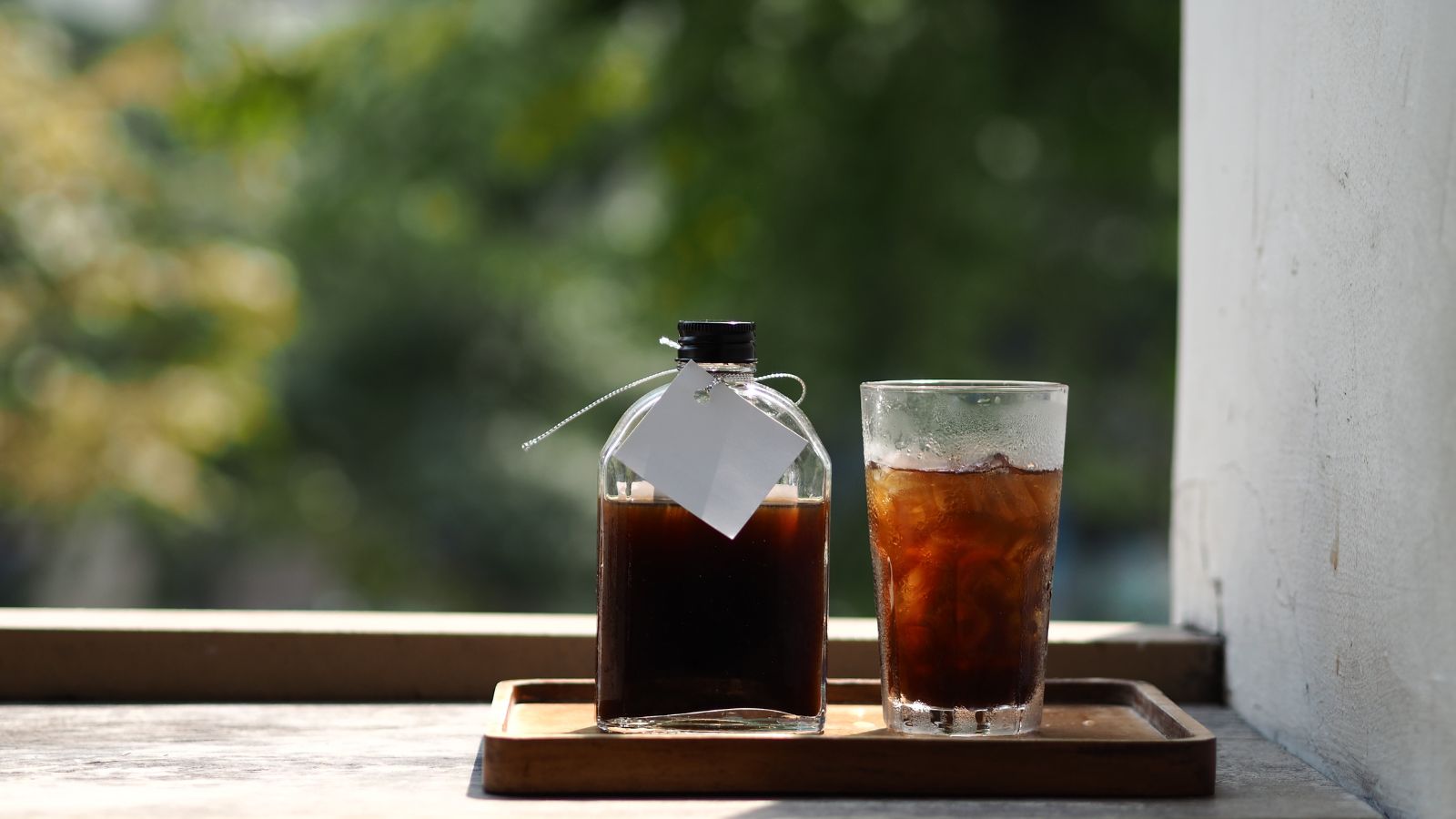
If you've never heard of cold brew, you've been missing out. It's a deliciously smooth, cool, caffeinated drink. Lots of people compare it to iced coffee. And, although the two drinks are equally delicious, they're actually very different.
In cold brew coffee, the divisive acidity of iced coffee is almost imperceptible. It's smooth and chocolatey, so if you prefer sweeter drinks or have a sensitive stomach, it’s worth learning how to make cold brew coffee. You can do this in a cold brew coffee maker, which can be quick, or in a French press for 18 hours.
On the other hand, iced coffee comes with some of hot coffee's acidity and bitterness. There's a very specific and easy way to make iced coffee from hot coffee. As a barista, I've made countless cups of both coffees. I asked other professionals, roasteries, and coffee connoisseurs for their top tips on making iced coffee and cold brew.
What's the difference between iced coffee and cold brew coffee?
Iced coffee is coffee that's been cooled with ice. Cold brew coffee, on the other hand, is coffee brewed at a cold temperature. It's a simple difference, but easy to confuse because the names are so similar.
Iced coffee vs cold brew taste test
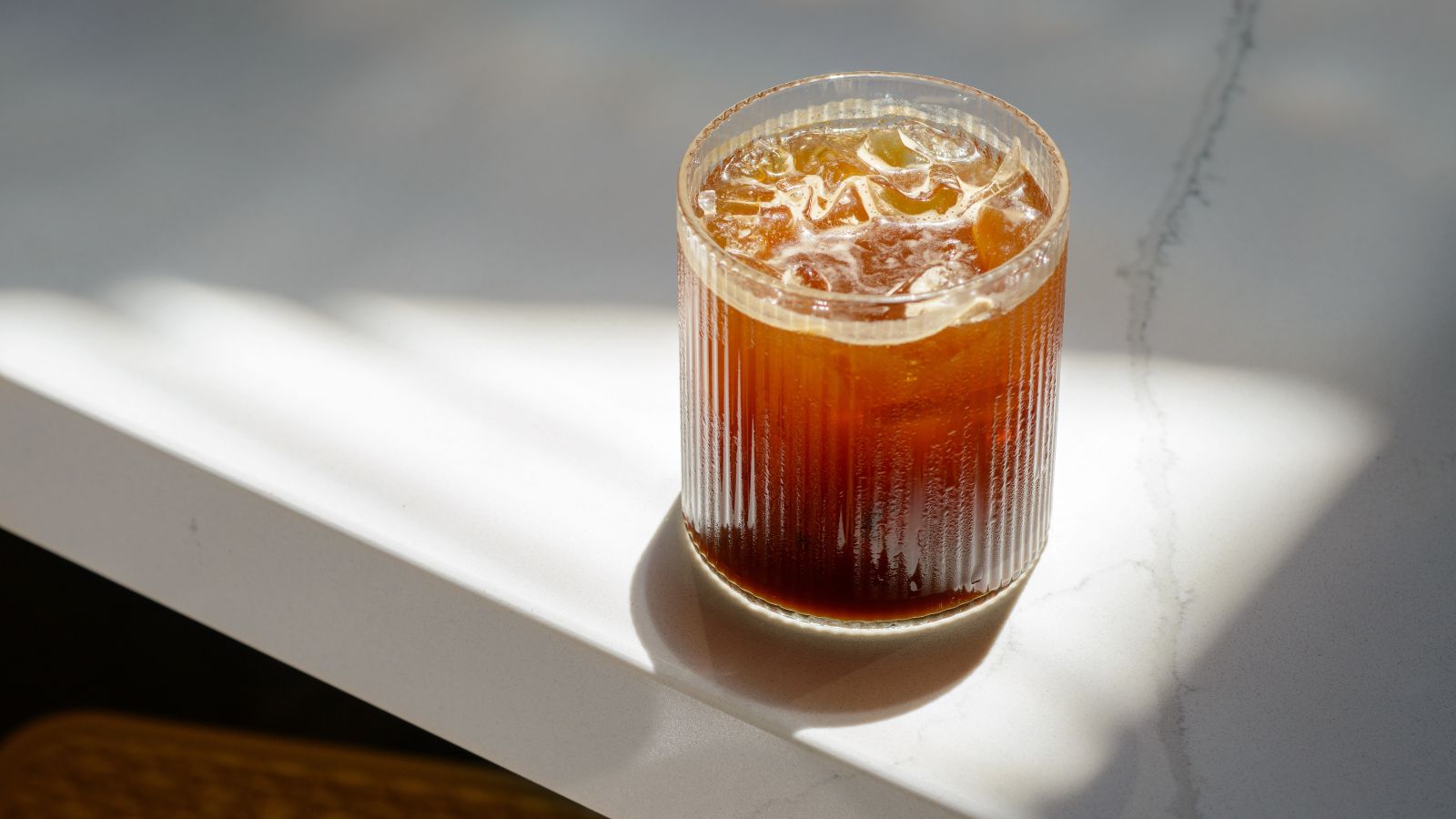
When it comes to which is best, it depends on how you like your coffee. Cold brew and iced coffee have different flavor profiles. Cold brew's sweeter, smoother notes works well for those who usually don't drink coffee. Iced coffee's acidity appeals to the dedicated hot and cold daily drinkers.
Iced coffee is great if you want more body and balance in your cold cup. If your coffee has been cooled using water ice cubes rather than coffee ice cubes, it can be a bit too weak.
If the acidity of normal coffee upsets your stomach, cold brew could be the answer. Dietician and nutritionist, Lisa Richards says that 'since cold brew is made with cold water, it tends to have a slightly lower acidity level, which may be beneficial for those with sensitive stomachs'. If you struggle drinking normal coffee, it's worth giving cold brew a shot.
When it comes to flavors, Jai Lott, VP of Product at Blank Street, says that 'cold brew often gets lost next to iced coffee and doesn't get the recognition it deserves for being a stronger, smoother, more well-rounded alternative to iced coffee'. He's tested a number of recipes, looking for ways to complement the natural chocolate and vanilla tones in cold brew. His favorite recipes are brown sugar cold brew, chai cold brew, and grapefruit cold brew.
How to make iced coffee
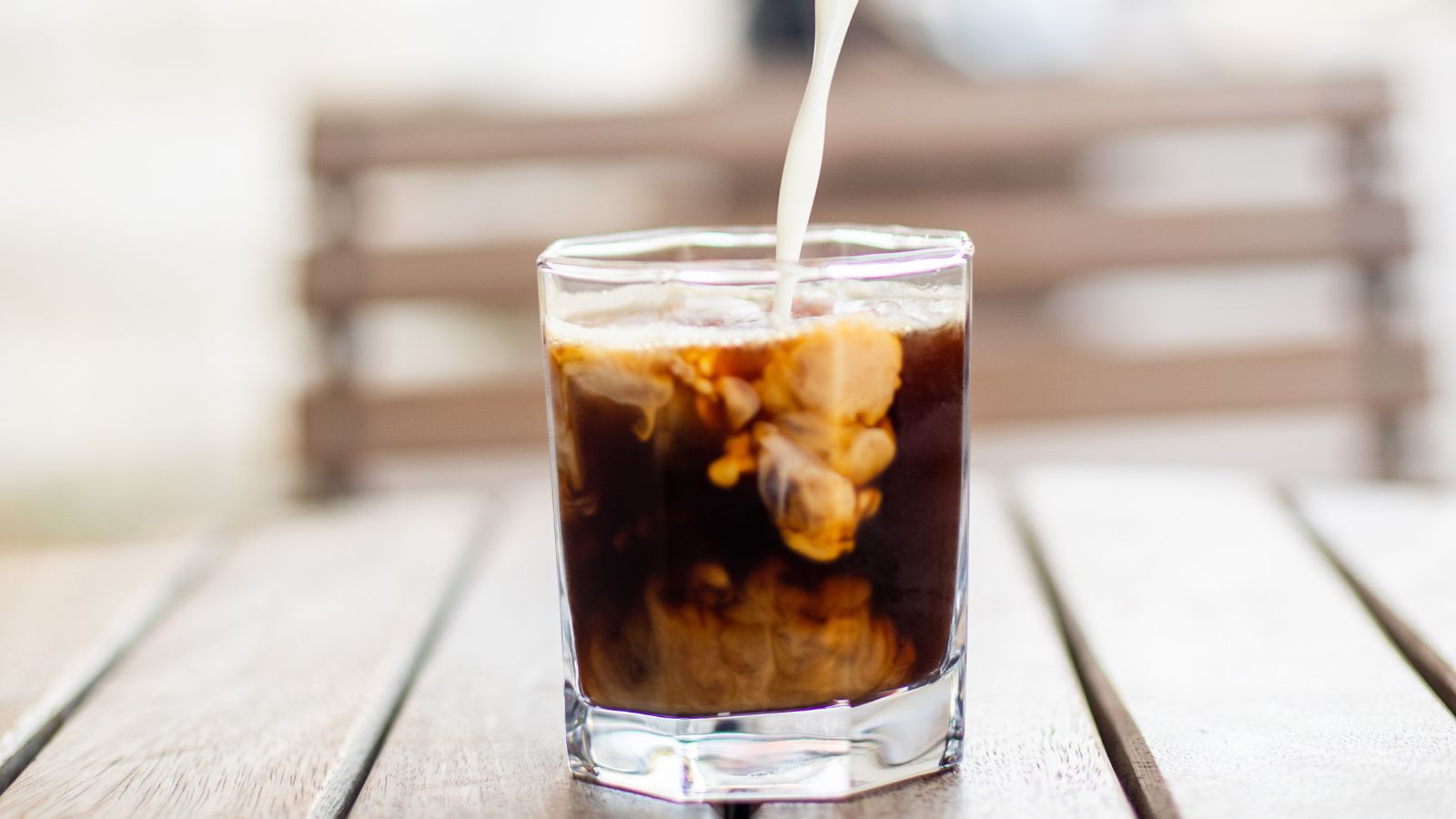
Both brews start with freshly ground coffee. Kayla Stavridis, from Barista HQ, says that using a fresh, quality grind 'is paramount in both methods. For iced coffee, stick to your regular grind, as you would for hot coffee. When it comes to cold brew, go for a coarser grind.' This texture will be easier to clean up and will give you a sweeter tasting cup. The best way to customise your grind is by using a top quality grinder.
Making iced coffee is simple. You brew fresh coffee as you would normally and then chill it in the refrigerator. Alternatively, you could brew hot coffee over ice. When you pour hot coffee over the frozen coffee cubes, they melt, but won't dilute your brew. Alternatively, specialist coffee makers adjust the intensity of the espresso to counterbalance ice cube dilution.
An expert espresso machine for professional, barista-quality coffee making, this machine is hard to fault. The adjustable settings mean that you can pull the perfect espresso shot over ice without it turning bitter.
For
- Makes amazing coffee
- High-quality features
- Quick start up
- Integrated bean hopper
- Easy to clean and refill
Against
- Some non-recyclable packaging
- Requires some milk frothing practice
An easy option for coffee lovers, Nespresso have launched special pods for iced coffee, so you can enjoy a cold brew without any bitter or acidic flavors. Simply put a pod in, press a button, and you're ready to go.
For
- Sleek & stylish design
- Easy to use
- Smartphone connectivity
- Brews a wide range of coffee types
Against
- Only compatible with Nespresso Vertuo pods
- No temperature control on milk frother
The Dinamica is a dynamic coffee maker, with over 16 different coffee settings. The over-ice option adds an extra level to this machine's capabilities. Rather than producing a normal shot, it anticipates how your coffee will change over ice.
For
- Integrated milk frother
- Simple touchscreen controls
- Range of coffee options
- Easy to clean
Against
- Expensive
- Heavy
- Milk frother can be messy
- Wasteful set-up process
How to make cold brew
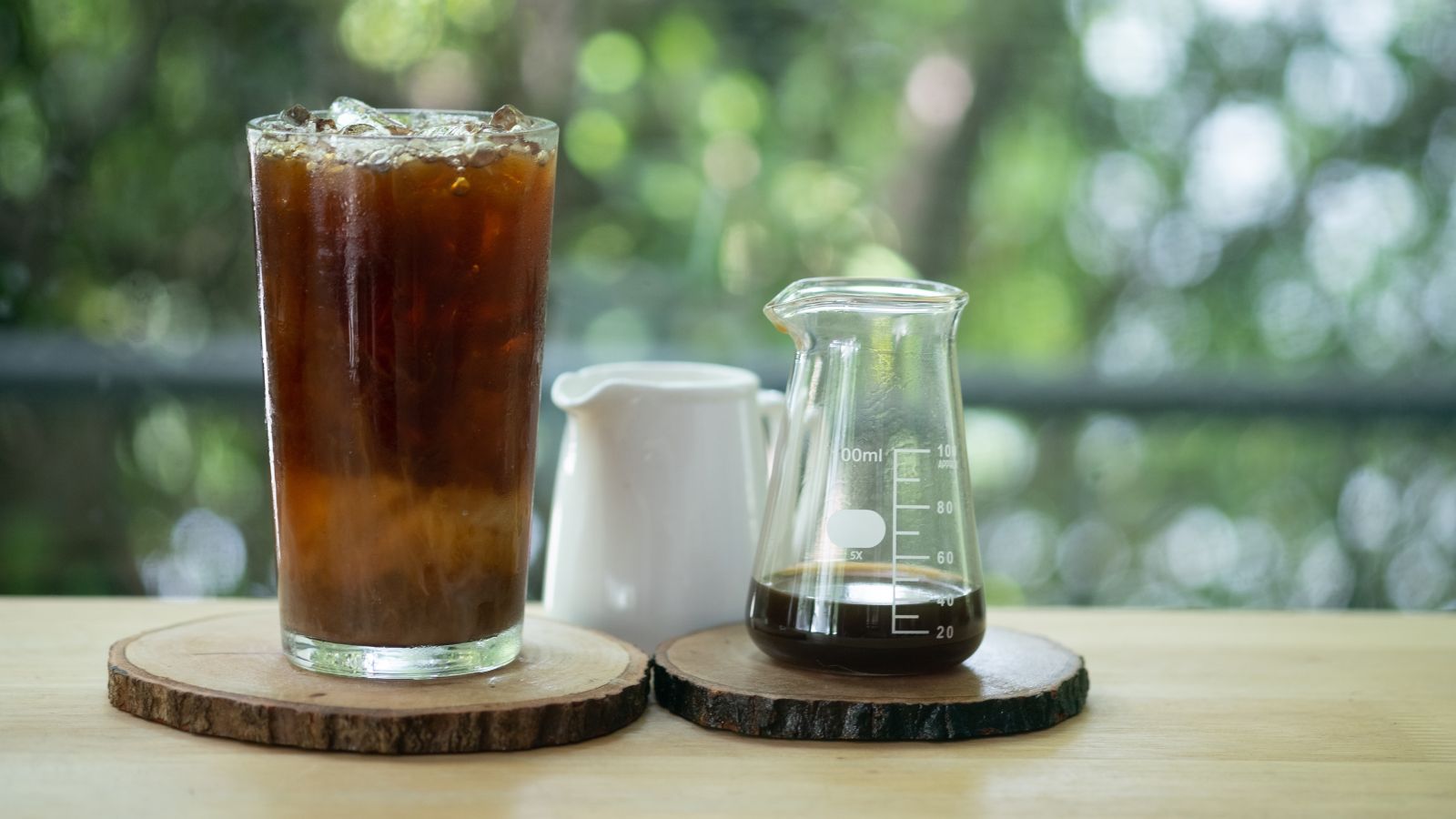
I spoke with Hash Parvez, the Field Coffee Trainer at Blank Street for his cold brew top tips. He recommends Ethiopian and Kenyan beans like these from Union for the perfect cold brew shot. He steeps coffee grounds in cold water for over 12 hours. You can leave your grounds in water for up to 24 hours if you want a more concentrated result. Once you've brewed your coffee and filtered out the grounds you'll have very strong cold brew, which you need to dilute. Hash describes this as 'packed with an incredible texture and flavor, without the bitterness of a traditional espresso shot'. That's why it's a brilliant alternative if you don't like hot coffee.
I've tested some of the best cold brew coffee makers on the market and they come with their own instructions on how to make cold brew. Some only take five minutes and others require an overnight soak.
If you're not ready to commit to a dedicated cold brew coffee maker, I think French presses can make cold brew concentrate which tastes just as good. Make sure that you use coarse grinds and filtered, cool water in a 1:8 ratio of coffee to water. I like to use a French press for my cold brews as it can go straight into the fridge.
Espro's French press is an investment. It's more expensive than average, but the stainless steel, double-walled, double filter mechanisms mean that you'll brew a smooth and aromatic coffee, perfect for icing.
This elegant French press is ideal for steeping your coffee in, hot or cold. It's easy to clean and makes really smooth coffee. It's also a reasonable price too, so you can make cold brew for less money.
Professional Tips
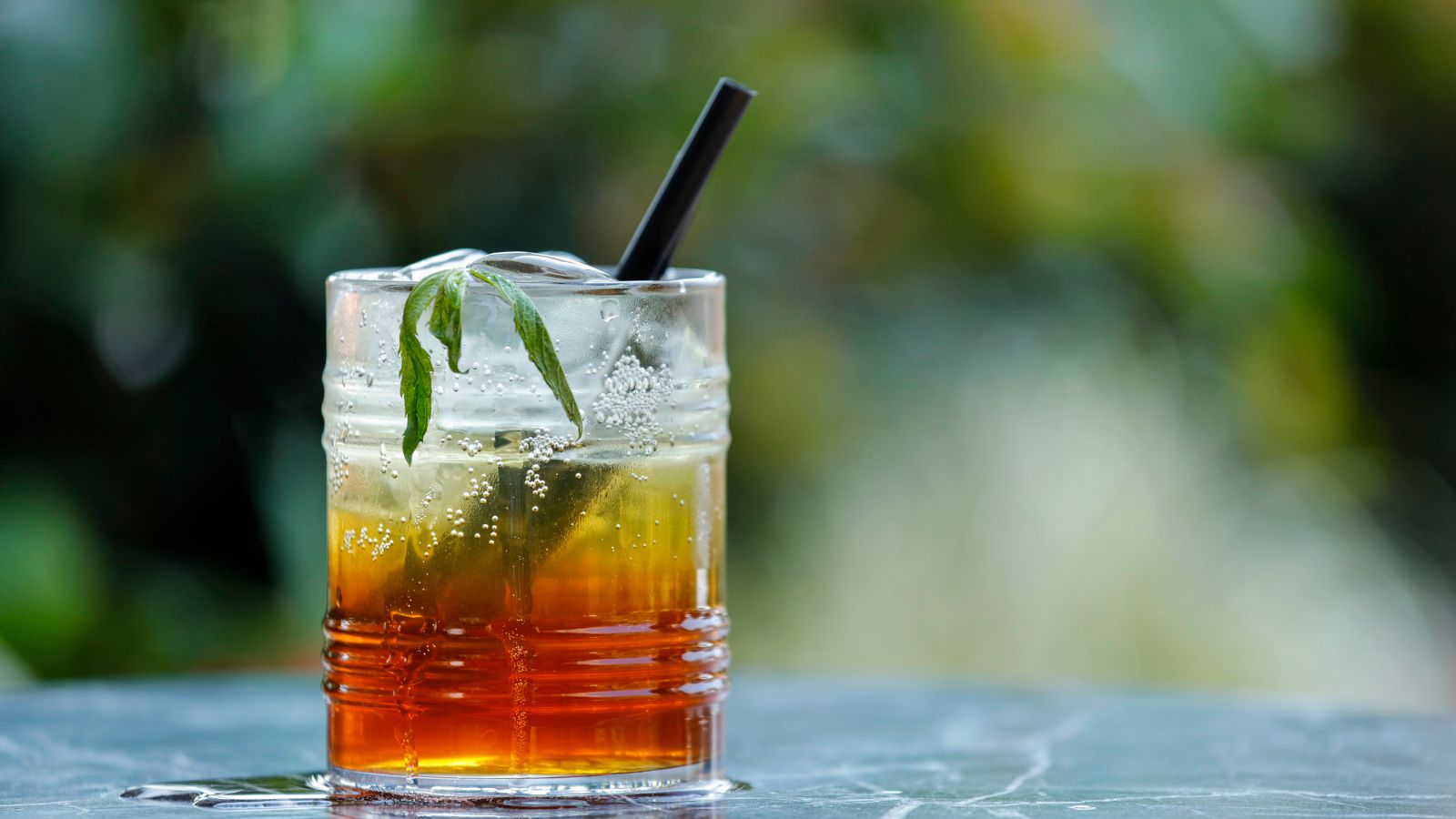
I also asked roastery experts how to enhance the flavors in cold brew and iced coffee. Tom Sobey, founder of the specialty coffee roastery Origin Coffee, gave me some brilliant tips for exceptional brews. He recommends that you 'dial in your machine, weigh your coffee, and use freshly ground beans any time you make coffee', which almost goes without saying. To experiment more with your coffee, he recommends making cold brew cocktails. I've tried a cold brew mojito and a cold brew margarita and I can recommend both of them.
Tom also adds sparkling water to his cold brew for a refreshing drink. He recommends a 1:1 ratio. You can swap sparkling water for tonic water or ginger beer and a slice of grapefruit or orange. These both have tangy and bitter notes as well as some sweetness. Balanced by the sweet cold brew flavors, you'll have a well-rounded cup.
FAQs
Is cold brew the same as iced coffee?
Although both products require coffee grounds and filtered water, their taste profiles are very different. Cold brew is extracted in cool conditions over 12 hours, whereas iced coffee is hot coffee that has been cooled down. As a result, iced coffee is more bitter and acidic than the cold brew counterpart.
Can you heat cold brew?
Yes. When you make cold brew, the resulting liquid is a concentrate. You can add this to hot water for a warmer, sweeter version of your hot coffee.
Can you heat iced coffee?
Yes. If you skip the iced part of the coffee, it's already hot. You can re-heat it, but it might start to taste a little stale.
Is iced coffee stronger than cold brew?
When you make cold brew at home, you'll produce a concentrate. This is stronger than iced coffee and needs to be diluted. Once both are ready to drink, one is not stronger than the other. The main difference is in their flavor profiles.
Is cold brew better for my stomach?
It can be. Cold brew extracts coffee oils in a more gentle process, meaning that there are less acidic and bitter notes to the drink. If you suffer from acid reflux, dieticians suggest that cold brew might not have the same, unsettling effect on your stomach as iced coffee.
Our Verdict
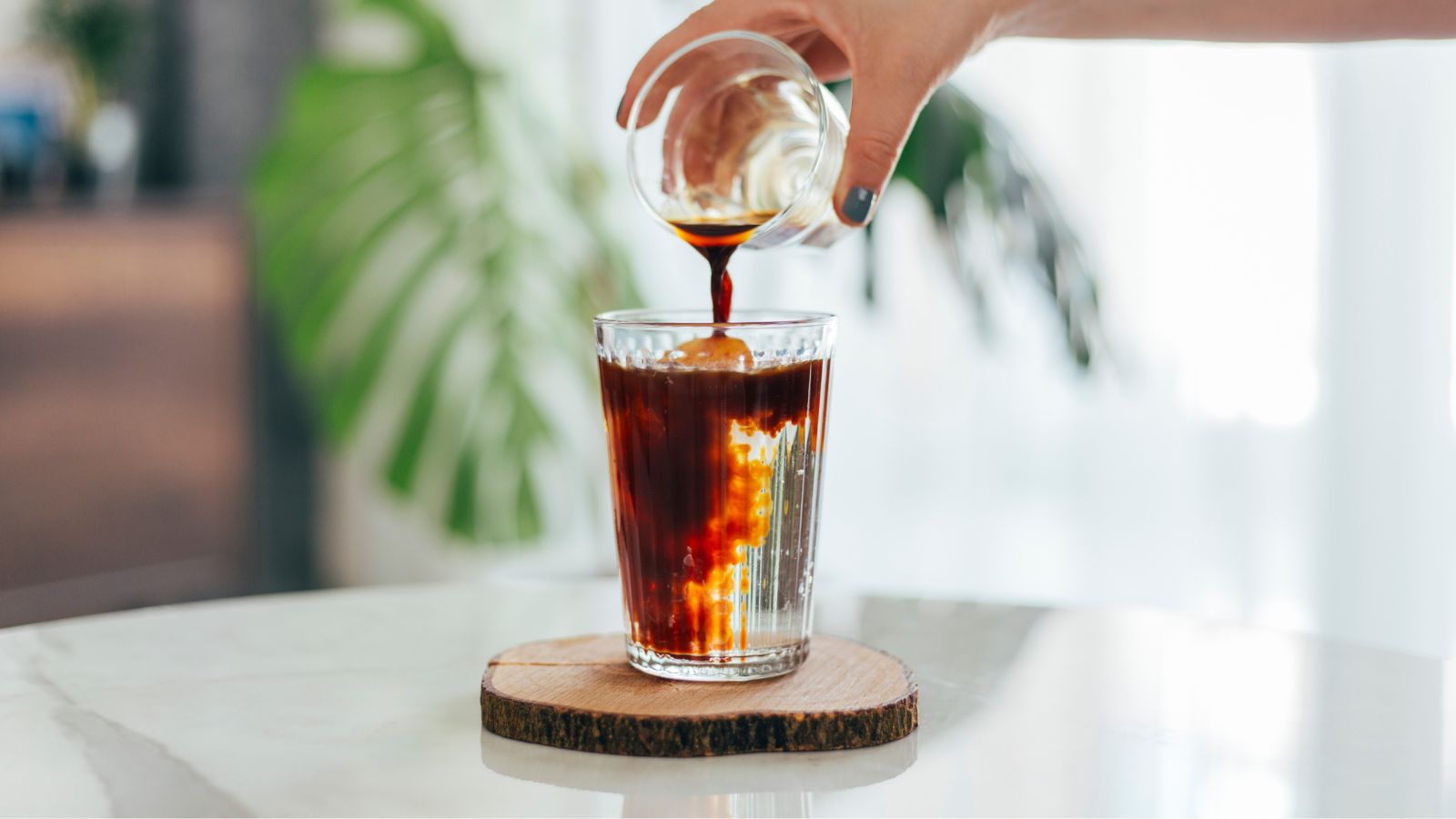
Choosing between iced coffee and cold brew can be a tricky decision to make. They're brilliant in different ways. I'm newer to cold brew, so tend to reach for it more often. I've found that adding this vanilla paste from Amazon to my cold brew works much better than sugars because they don't dissolve as well in a cold liquid. It's worth experimenting. After trying some cold brew mojitos a couple weeks ago, adding ginger beer to cold brew is going to be my next trial.







